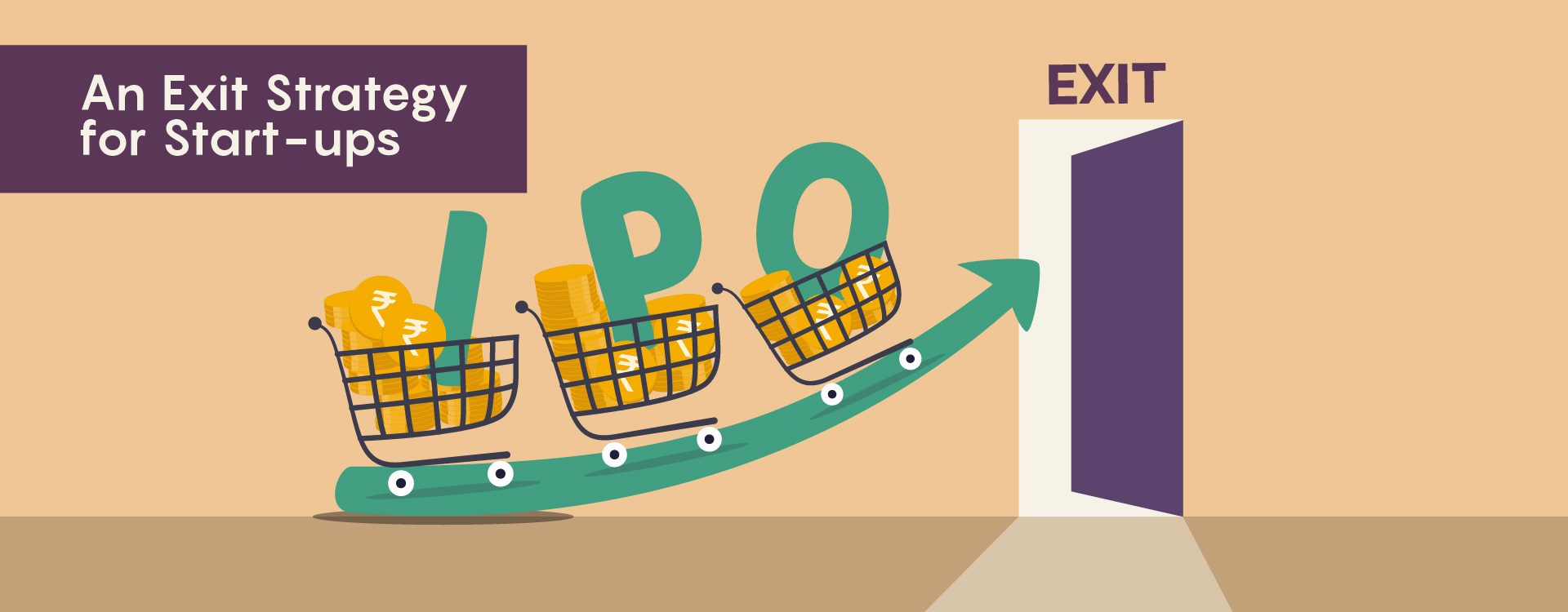There comes a time for mature and established start-ups when it is no longer possible to raise more capital from VCs or private equity firms. And they start weighing their options on the street. Well, according to a recent survey, nearly fifty percent of start-ups think going public, i.e., IPO, is a good exit strategy for start-ups.
What is an IPO?
An initial public offering or an IPO occurs when a start-up offers a certain number of its shares for public sale. Following a valuation process, the stakes are listed on the stock exchange at a price determined by the start-up. Once the shares enter the market at the trading price, they are traded freely on the stock exchange.
The listing decision means that the market determines the shares’ price, and the founders and investors holding the shares lose direct control over the initial value. If successful, the company will have significant capital and liquidity. In the event of failure of the IPO, the paid-up capital account or additional paid-up capital will not increase above the face value.
‘‘
Improving the finance unit and talent management seems to be a priority for start-ups in the future.
Why are start-ups going for IPO?
The start-up ecosystem is emerging with an exciting trend as more and more companies are launching IPOs. This is a direct result of a large amount of capital in the start-up market by entrepreneurs, private companies and other investment institutions.
With the pandemic underscoring the power of the public market and the importance of a healthy single economy, start-ups are seeing IPOs as a potentially profitable product for their investors.
47% of start-up founders, surveyed by InnoVen Capital as part of their founders’ annual review, stated that the IPO is a realistic exit scenario for them, compared with 43% in the previous year and 39% in 2019.
Pandemic changed the IPO game
The financial architecture of many start-ups improved during the first period of the COVID-19 setback. But for this trend to grow upwards, the sentiment of public procurement and India’s markets will have to be favourable for high growth, comparatively low-profit companies.
In the InnoVen Capital survey, respondents from the logistics industry were the fastest to hold an IPO in India, with almost 83% saying they preferred the route. Zomato, Nykaa, PolicyBazaar, Delhivery, Freshworks and others are some advanced Indian technology companies considering an IPO in India or abroad over the next two to three years.
As growth and customer demand continue to be at the heart of Indian start-ups, more and more companies are shifting their focus on breaking even. With more focused on profitability, they are running on the right track to make earnings and assets profitable in the future.
Improving the finance unit and talent management seems to be a priority for start-ups in the future. They have also experienced a significant recovery after the nationwide shutdown due to COVID-19. While most companies in e-commerce, logistics, B2B platforms, enterprise software and D2C segments are coming out on top and attaining their pre-COVID business, many are still catching up.
But one thing that seems to be on a high note is that IPO is looking like one of the favourite exit options for many start-ups, old and new alike.




